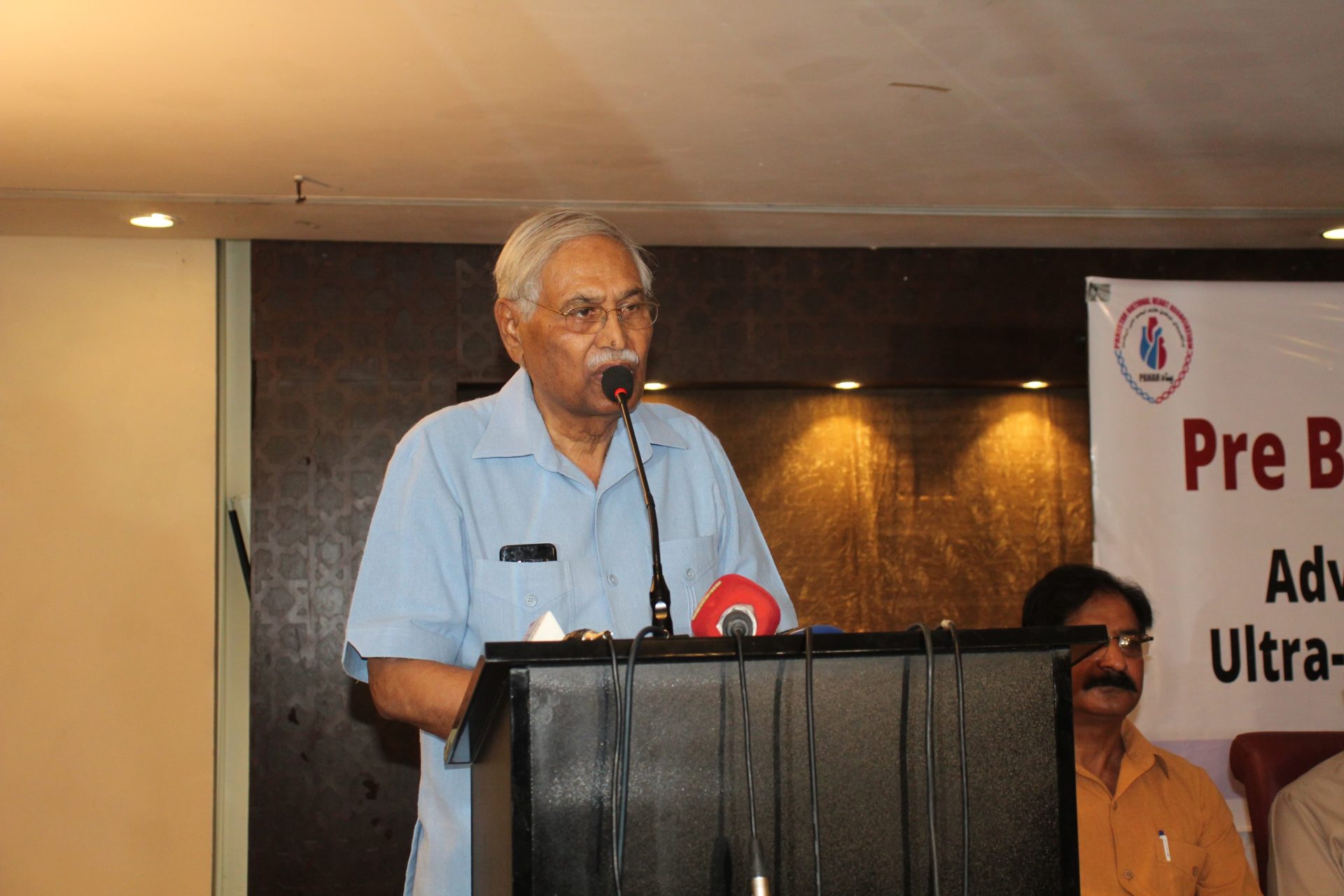 Pakistan is grappling with a severe crisis of non-communicable diseases, with millions suffering from diabetes, obesity, heart disease, kidney ailments, and certain types of cancers. The consumption of sugary drinks, juices and ultra-processed foods is among the major contributing factor to this national health emergency.
Pakistan is grappling with a severe crisis of non-communicable diseases, with millions suffering from diabetes, obesity, heart disease, kidney ailments, and certain types of cancers. The consumption of sugary drinks, juices and ultra-processed foods is among the major contributing factor to this national health emergency.
However, the beverage industry has skillfully omitted from its narrative is the devastating impact of its products on public health in term of increased hospital expenditure and social cost of premature deaths and diseases. The statistics from International Diabetes Federation suggests that over 1100 people are dying daily in Pakistan due to diabetes or its complications. The number of people living with diabetes increased to 33 million and are set to reach 62 million by 2045, if no immediate policy action taken. The annual cost of diabetes management crossed USD 2640 million in 2021, putting a huge burden on import of raw material and medicine.
Alarmingly, the consumption of sugary drinks has been linked to a 30% increased risk of developing this debilitating condition. The fact is that the beverage industry’s myopic pursuit of profits has come at a staggering cost to the people of Pakistan.
Statistics suggest that the fruit juice industry procures only a fraction of the total fruit output in Pakistan for pulp making. Some statistics says, it is less than 2 percent of the total fruit production in the country. It is a blatant lie to claim that because of reduced pulp purchases by the juice industry, fruit farmers would descend into further poverty.
In real sense, the beverage industry is convert heathy fruits into unhealthy substance like juices and nectars etc. The matter of the fact is beverage industry is promoting their juices through misleading claims of healthfulness to safeguard their profits. The research suggests the amount of sugar in these juices is as high as in the other sugary drinks. The World Health Organization recommends eating fruits in its original form instead of juices. The improved farming practices can help fruit farmers to increase the shelf life, dehydrate fruits through technological advancement and can make the entire supply chain a healthier for their consumers. There are significant opportunities to export fresh and dehydrated fruits to international markets.
Similarly, the claims for export of fruit juices are dubious. While Pakistan has already a low price and taxes on juices as compared to potential export markets.
The beverage industry’s claim about higher taxes is gross exaggeration designed to elicit public sympathy and sway policymakers. The matter of the fact is that beverage industry has low taxes as compared to many other countries. For example, Saudi Arabia, Oman, Qatar and UAE have imposed 50 % taxes on sugary drinks and 100 % on energy drinks. In addition, 5 % VAT is also applicable in Saudi Arabia. This has significantly helped cut down the consumption and reducing diseases burden, along with other measures. For example, Saudi Arabia once having much higher prevalence rate of diabetes have now been able to reduce its prevalence, but in Pakistan, the number of people living with diabetes grown to five times in last 10 years.
Policymakers started realizing to mitigate the growing disease burden in Pakistan. Last year the coalition government increased FED on Juices and sugary drinks, which was a right step towards prioritizing public health over corporate interest. Recently, Mr. Asif Ali Zardari, the President of Pakistan, expressed his commitment to increase taxes on sugary drinks and ultra-processed products while talking to a delegation of ‘Pakistan National Heart Association’ (PANAH) in Islamabad.
The minutes of the meeting clearly highlight the need for increasing taxes on sugary drinks and ultra-processed products, enacting regulations for front of pack warning labels through PSQCA and taking other policy measure to reduce consumption of these risk factors for diabetes and cardiovascular diseases. Many parliamentarians and public officials had also supported the call for more taxes on sugary drinks to reduce consumption for better health outcomes. The policy is also backed by the public support. A national opinion poll, conducted by Pakistan Health Research Council revealed that 78 % people supported increasing taxes on sugary drinks.
The matter of the fact is that increasing tax on sugary drinks is a triple win for government and people of Pakistan. The world bank study conducted in 2022 in Pakistan revealed that If government increases 50% federal excise duty on all sugary drinks, it will bring health gain of 8500 DALYs, economic value of USD 8.9 million to public health and USD 810 million average annual tax revenue for the next ten years.
The civil society and health professionals are already demanding the government to increase the FED to 50 % during the finance bill 2024-25. Government must consider increase tax on all sugary drinks and earmark a proportion of the revenue for public health and making fruits, vegetables and lentils more affordable for vulnerable population.
The writing is on the wall: the era of unchecked exploitation by the beverage industry must come to an end. It is high time we call out this deception and hold beverage makers accountable for the damage they have inflicted on our nation’s health. Instead of succumbing to their demands, the government should explore avenues to further discourage the consumption of sugary drinks.
We can no longer afford to turn a blind eye to their insidious tactics and the devastating impact of their products on public health. It is time for the government to prioritize the welfare of its people over the greed of these corporations and implement policies that promote healthy lifestyles and protect the most vulnerable members of our society.
Editor: Kamran Raja